Think back to your veryfirst kiss.
Good times, good times.
Even if your first kiss was less than desirable, you wouldn’t swear off kissing for good.
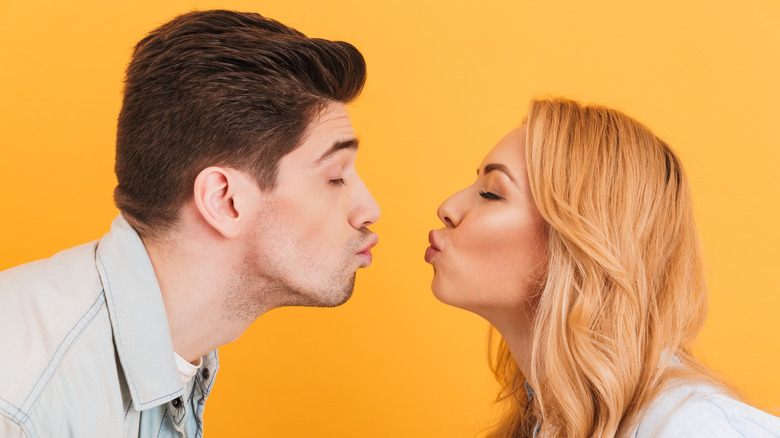
Rather, you’d go on to experience more first kisses some better, some worse with other people.
After all,we’re one of the only speciesthat engages in the behavior.
Here’s what’s up.
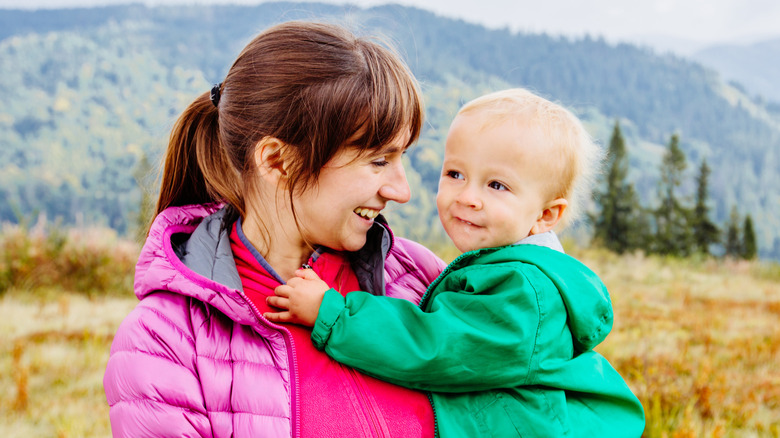
But, in 1915, two researchers observed adult chimpanzees kiss-feeding one another.
As odd as it may sound, this isn’t just something animals do.
Humans mostly in other parts of the world also kiss-feed their babies.
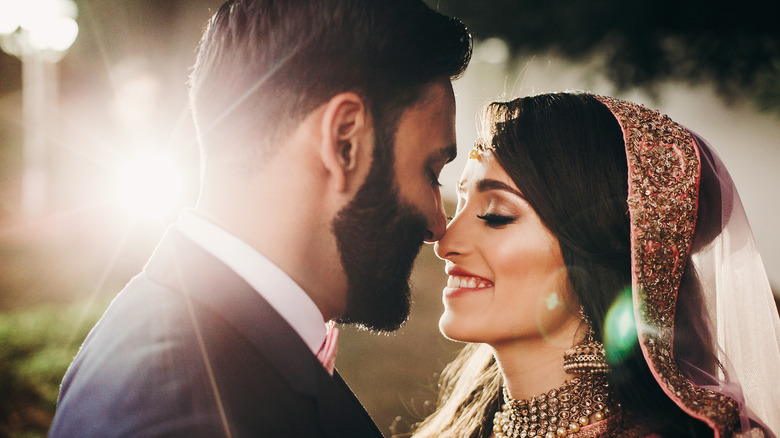
Apparently, premastication and smooching call for similar “movement patterns.”
Thus, it has been theorized that kissing could very well have stemmed from kiss-feeding.
However, researchers discovered proof that people were doing somethinglikemodern-day kissing some 3,500 years ago.

Some 500 years later, a mouth-to-mouth behavior was also described inthe Sanskrit epicMahabharata.
In fact, even the word “kiss” comes from India.
The first kiss may very well have taken place in this southern Asian country.
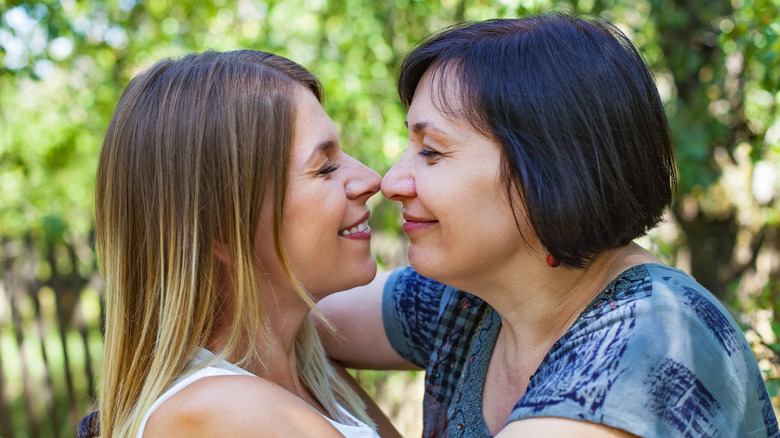
“The Romans kissed their partners or lovers, family and friends, and rulers.
Rome also happens to be the birthplace of the wedding day kiss.
By the fall of Rome, however, kissing as a romantic gesture had all but died out.

It wasn’t until a thousand years later that kissing found its way back into romance.
Sniff-kisses
Not every kiss calls for mouth-to-mouth contact.
The earlier forms of kissing, for example, were likelymore about smellingthan actually pressing lips.
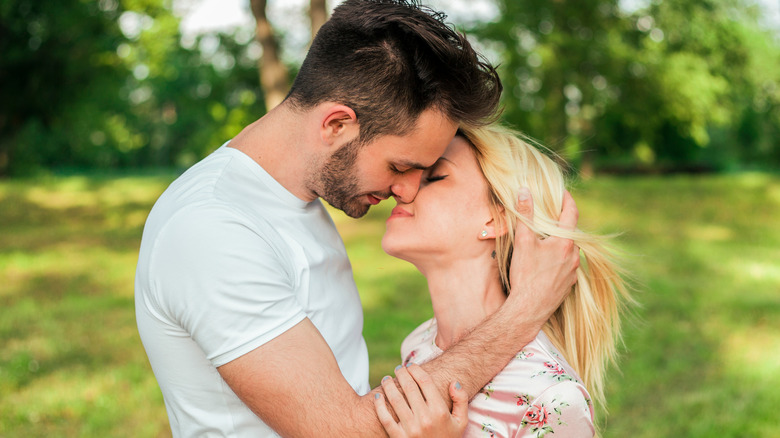
Sniff-kisses still exist in modern day, too.
This loving behavior is common in familial and romantic relationships.
He also revealed that he and his girlfriend exchange kuniks.
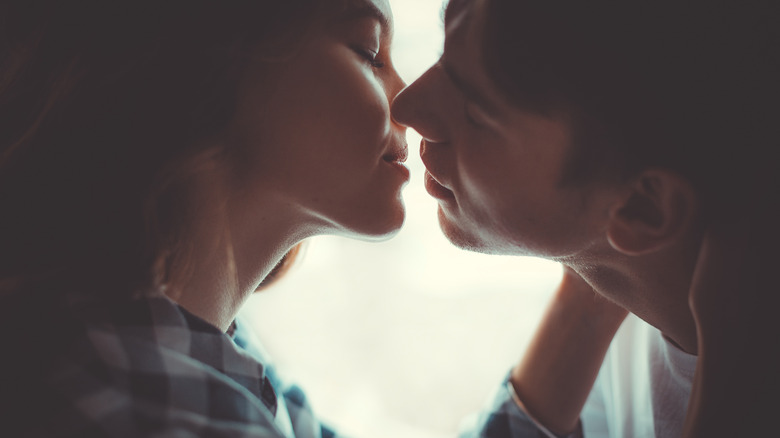
A learned or instinctual behavior?
Thekiss-feeding theorypoints to signs that kissing is a learned behavior.
Also, the fact that most animals don’t kiss may signify that the behavior is learned.

However,some animalsdokissand, even those that don’t, display similar signs of affection.
It’s also true that not everyone has the innate desire to kiss.
AsBBC Eatherthreported, the Mehinaku tribe in Brazil find the practice “gross.”

TBH, they’re not exactlywrong.
What’s love got to do with it?
In less scientific terms: foreplay.
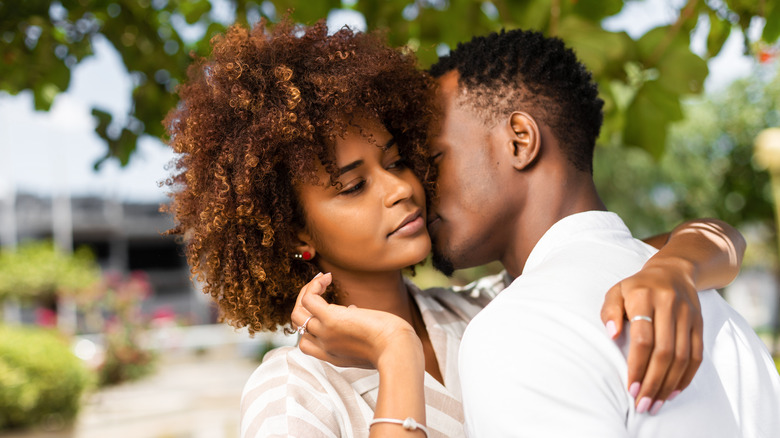
The things scientists study, amirite?
As the study revealed, participants especially women considered kissing to be most important while in long-term relationships.
“Maybe you have a happy relationship and you don’t need more intercourse.”
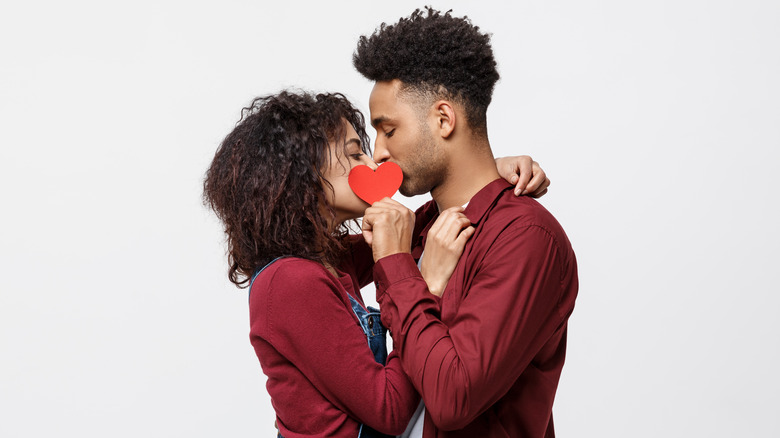
A bad first kiss could make or break the relationship before it really even gets going, it appears.
The brain digs kissing.
Yep, kissing provides people with the unique opportunity toliterallystimulate another person’s brain.
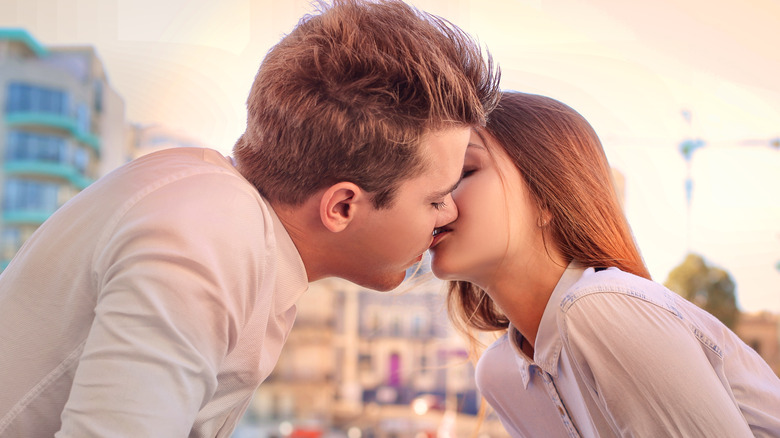
Okay, we’ll stop.
This is sounding weird.
It might not be all about passing testosterone, though.
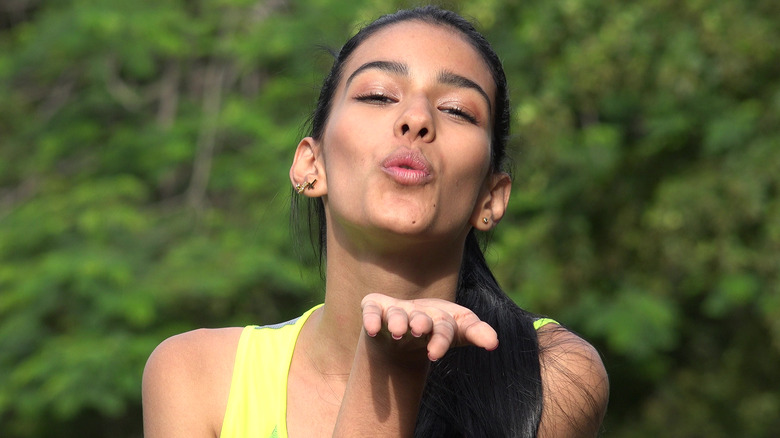
What’s in a kiss?
Testosterone isn’t the only thing that is exchanged during a smooch.
“This may activate evolved mechanisms that function to discourage reproduction among individuals who are genetically incompatible.”

But more than just hormones are at play.
Attachment and bonding
Oxytocin may just be the key ingredient in a kiss at least for men.
It’s about attachment and bonding much like other forms of physical touch.
Anearlier studyalso cited that couples had an easier time resolving their conflicts when engaging in displays of physical affection.
Cuddling or holding and kissing on the lips were found to be the most effective forms of physical affection.
Asone studyrevealed, hormonal changes had previously been found to have an effect on women’s mate preferences.
Sure, it’s a strange study, but the results were interesting.
As it happens, this isthe most difficult phase in which to conceive.
However, it’s not only people in remote tribes who find the practice disgusting.
It was once believed that90 percent of the global populationengaged in a form of romantic kissing.
But that figure waswayoff.
And, if you’re thinking this isn’t the case in western cultures, think again.
One form of kissing was found to be prevalent in all cultures, though.
But the thought of kissing a romantic partner?
Nothing says “I love you” quite like eyebrow-nibbling, right?